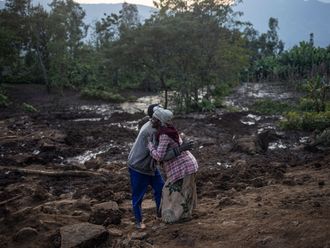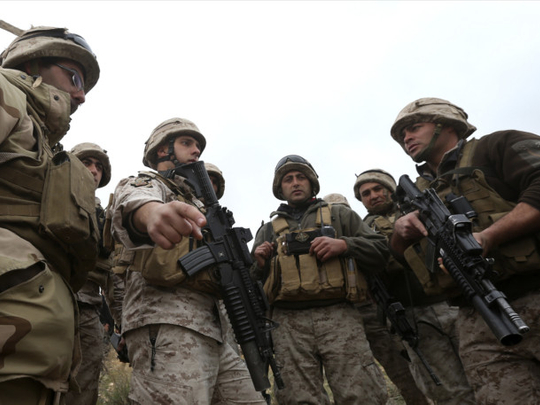
Nab Othnman, Lebanon: The Lebanese army sent commandos to the tense border area with Syria on Monday, bracing for another spillover of the conflict next door as Syrian rebels continued to flee into Lebanon after the fall of their stronghold to President Bashar Al Assad’s forces.
Since Yabroud fell on Sunday, Lebanon has been on edge. Syrian rebels have been fleeing into the Lebanese Sunni-dominated town of Arsal, which is surrounded by Shiite villages that are guarded by Hezbollah militants.
Lebanese troops, including commandos in beige, desert-style army uniforms, were seen patrolling the rugged, hilly border area on foot on Monday, fingers on the trigger of their automatic rifles.
On one patrol, near the northeastern village of Fakiha, Lebanese troops came across an abandoned vehicle and blew it up as a precaution, firing a rocket-propelled grenade that turned the SUV into a fireball and left a four-meter crater on the ground.
“We took the decision to blow is up immediately, without searching it,” an officer told The Associated Press at the scene, speaking on condition of anonymity in line with military regulations.
The fall of Yabroud — a frontier town and a strategic smuggling hub for the rebels trying to overthrow Assad — was a major gain for Syrian government troops and their Hezbollah allies. It was also the Syrian opposition fighters’ last stronghold in the vital border area. Al Assad’s forces have now consolidated authority in Syria’s major cities, including the capital, Damascus.
Yabroud fell into Syrian government hands after months of fighting in the mountainous Qalamoun region between Assad’s forces and Hezbollah fighters on one side and rebel groups, mostly Islamist militant groups, on the other.
The Hezbollah fighters have been instrumental to Al Assad’s success on the battlefield, and support from the Iranian-backed fighters appears to have tipped the balance into the government’s favour in Yabroud.
However, with opposition fighters fleeing into Lebanon, where Hezbollah is a major force, the conflict is likely further to spill into Syria’s smaller neighbour. The civil war already has ignited polarising sectarian tensions between Lebanon’s Sunnis and Shiites.
In the past weeks, Sunni militants have carried out several suicide bombings and car bomb attacks in Shiite dominated towns and suburbs of Beirut that are Hezbollah strongholds, claiming they were revenge for the Iran-backed group’s role inside Syria.
On Monday, a militant Sunni group claimed responsibility for a car bombing the previous night in Nabi Othman, a predominantly Shiite town in Lebanon’s Bekaa Valley that also has a significant Christian community.
The Nusra Front in Lebanon said in a statement posted on its Twitter account that the attack, in which two people were killed and 14 were wounded, was in revenge for Hezbollah’s support for Al Assad and “a quick response” for the fall of Yabroud into Syrian government hands.
The statement also said the Nabi Othman bombing was in retaliation for Yabroud and because of Hezbollah’s “bragging about it.”
In footage broadcast live on state television in Damascus, Syrian army officers raised the national flag in Yabroud’s main town square on Monday and covered rebel flag with posters praising Al Assad’s troops.


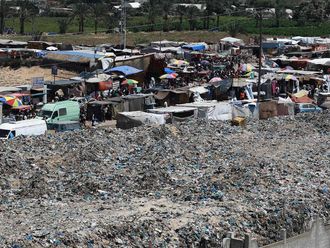
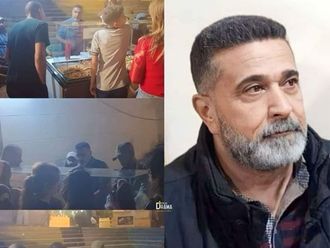


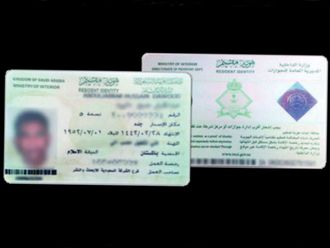

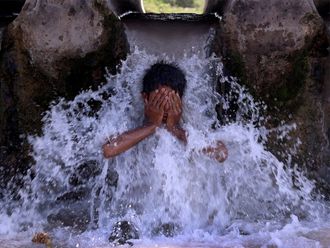

_resources1_16a30b3523c_small.jpg)
